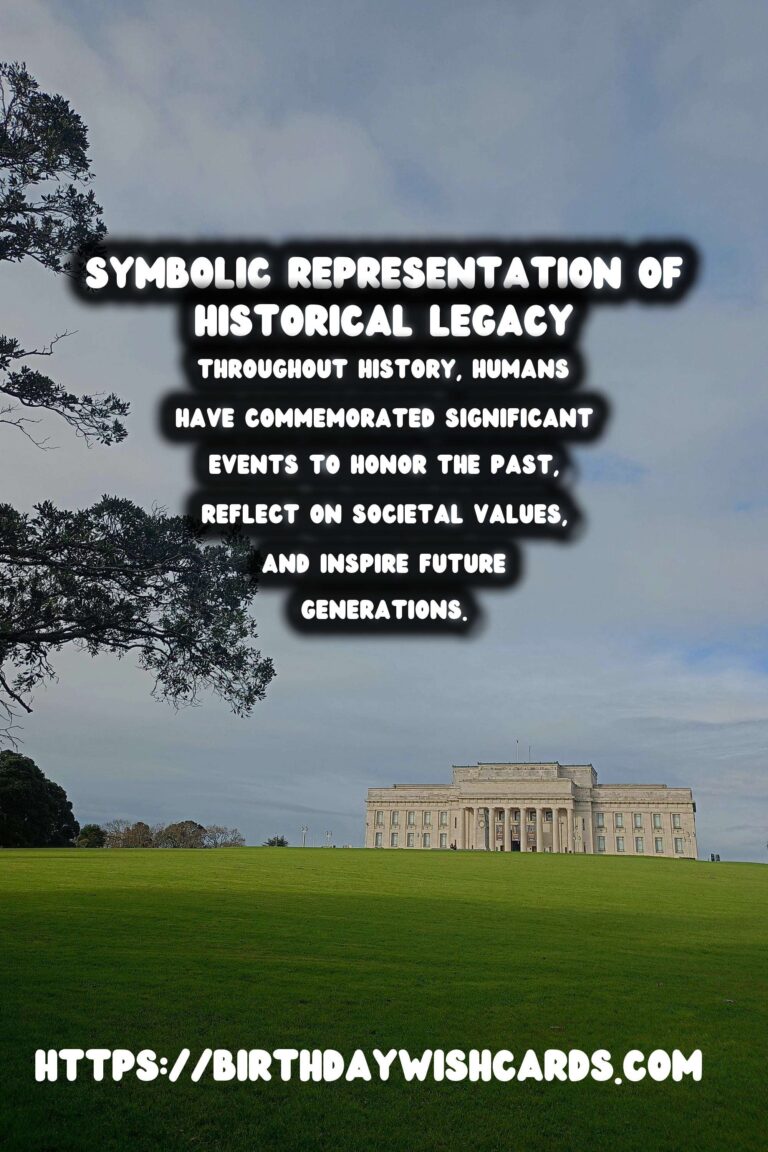 n
n
Throughout history, humans have commemorated significant events to honor the past, reflect on societal values, and inspire future generations. These commemorations can take various forms, from erecting statues and monuments to hosting public holidays and remembrance days. Such acts of remembrance are crucial in shaping public opinion and cultural identity.
nn
The Importance of Historical Commemorations
n
Commemorations serve as a bridge between the past and the present. They remind us of the struggles, triumphs, and lessons learned from history. By celebrating or remembering significant historical events, societies reinforce values, ideals, and principles that they deem important. This process of commemoration shapes collective consciousness and public opinion by ingraining certain narratives in cultural memory.
nn
Types of Historical Commemorations
n
There are several ways in which societies commemorate history:
n
- n
- Monuments and Statues: Physical structures that honor significant individuals or events.
- Public Holidays and Remembrance Days: Special days set aside for honoring historical events, such as Independence Day or Memorial Day.
- Documentary Films and Literature: These mediums educate and inspire by telling the stories behind historical events.
- Museums and Cultural Exhibits: Institutions that preserve and present artifacts and stories from the past.
n
n
n
n
nn
How Commemorations Influence Public Opinion
n
By framing narratives around historical events, commemorations can sway public opinion and influence cultural identity. The selective nature of commemorations often highlights specific aspects of history while overlooking others. This selective memory can play a powerful role in forming national identity and impacting policy decisions.
n
For example, emphasizing victories in war through commemorations can foster national pride and a sense of patriotism. Conversely, focusing on tragedies and losses can promote reflection, peace, and reconciliation. In this way, historical commemorations are not merely about remembering; they are tools for education and persuasion.
nn
Challenges and Controversies
n
However, historical commemorations can also be contentious. Debates often arise over which events should be commemorated, how they should be remembered, and whose perspectives are prioritized. Additionally, the reinterpretation of historical events, based on new evidence or shifting societal values, can lead to calls for the removal or recontextualization of certain commemorative artifacts.
n
Conclusion
n
In conclusion, historical commemorations play a significant role in shaping public opinion by preserving collective memory and promoting societal values. They offer societies an opportunity to reflect on their history, honor past achievements, and learn from previous experiences. Nonetheless, it is essential for societies to critically engage with these commemorations to ensure a nuanced understanding of history that includes multiple perspectives.
Throughout history, humans have commemorated significant events to honor the past, reflect on societal values, and inspire future generations. In conclusion, historical commemorations play a significant role in shaping public opinion by preserving collective memory and promoting societal values. 
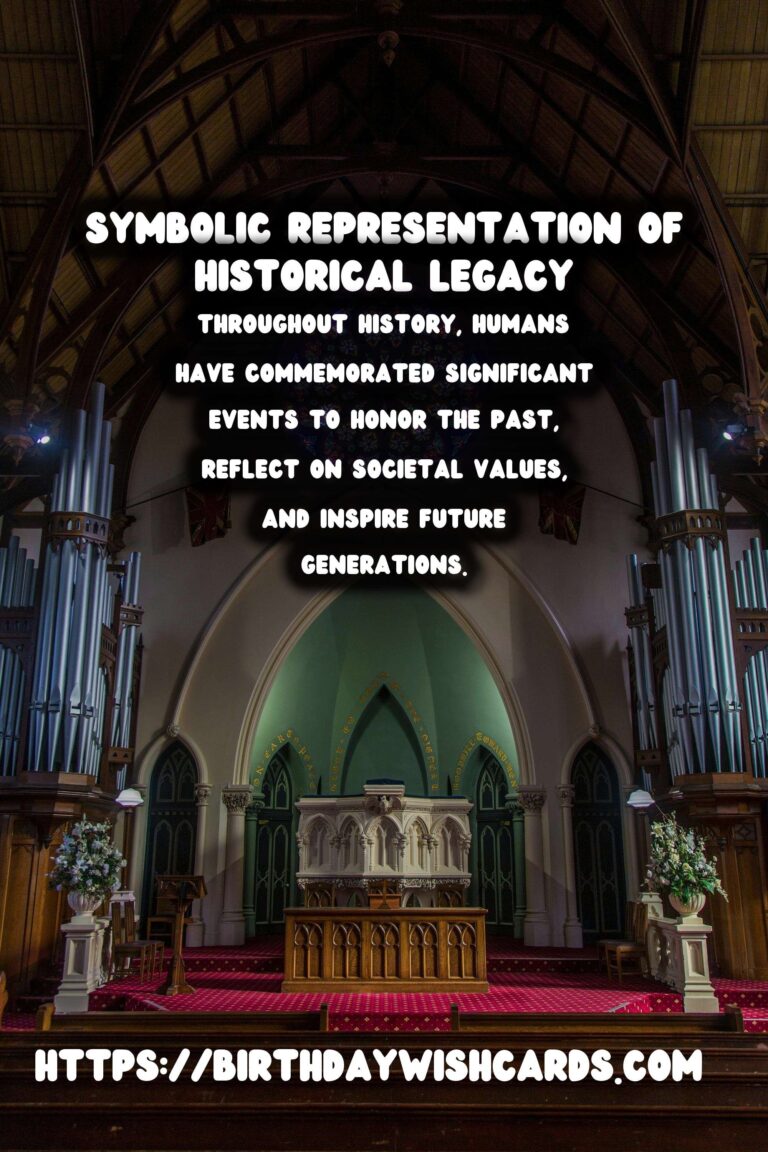
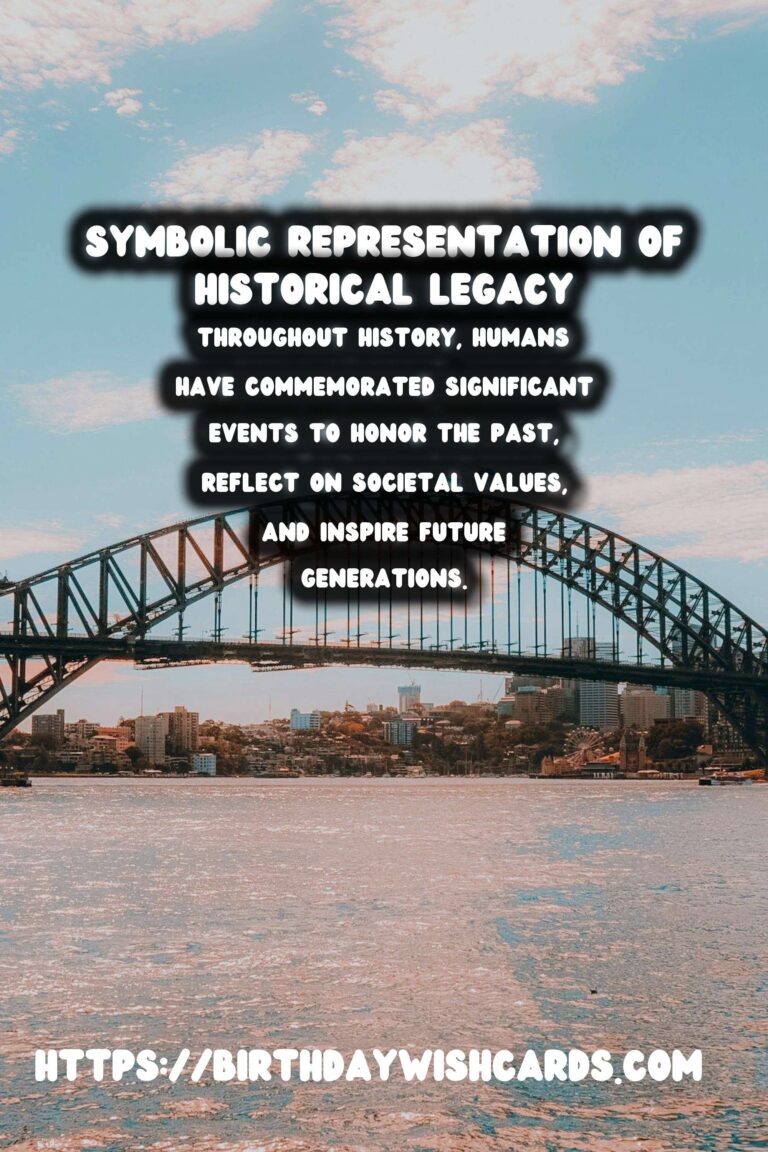
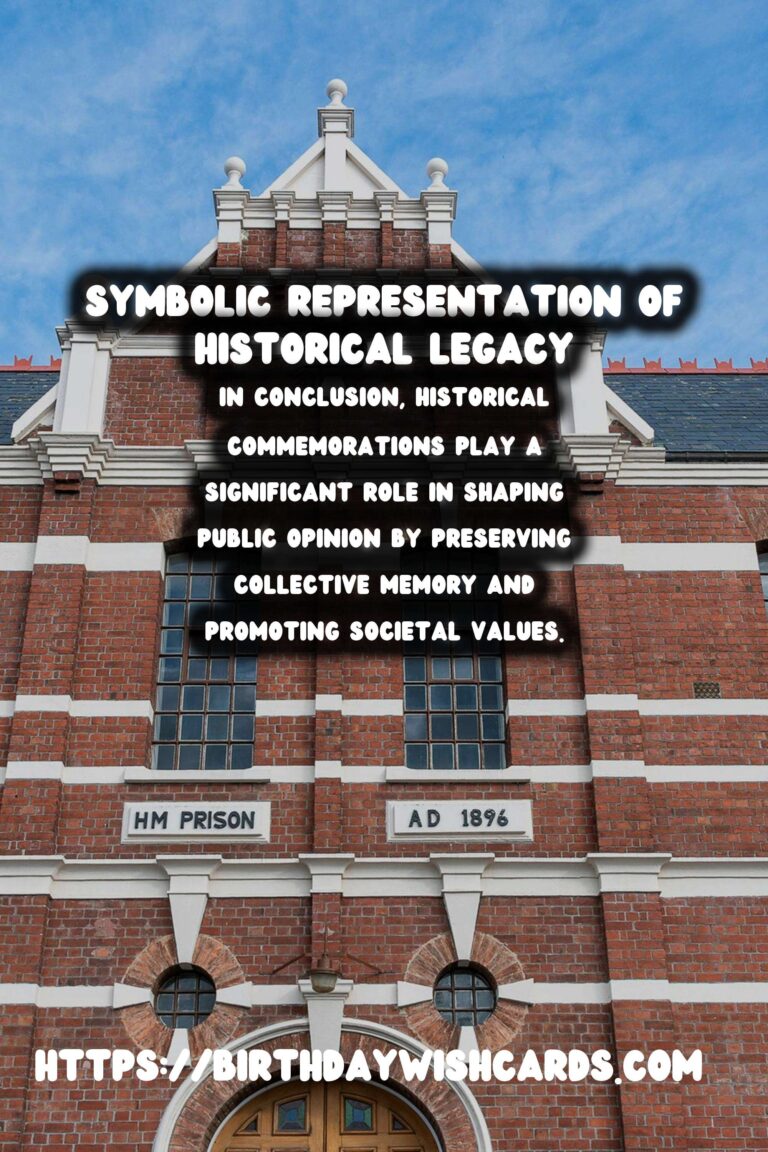
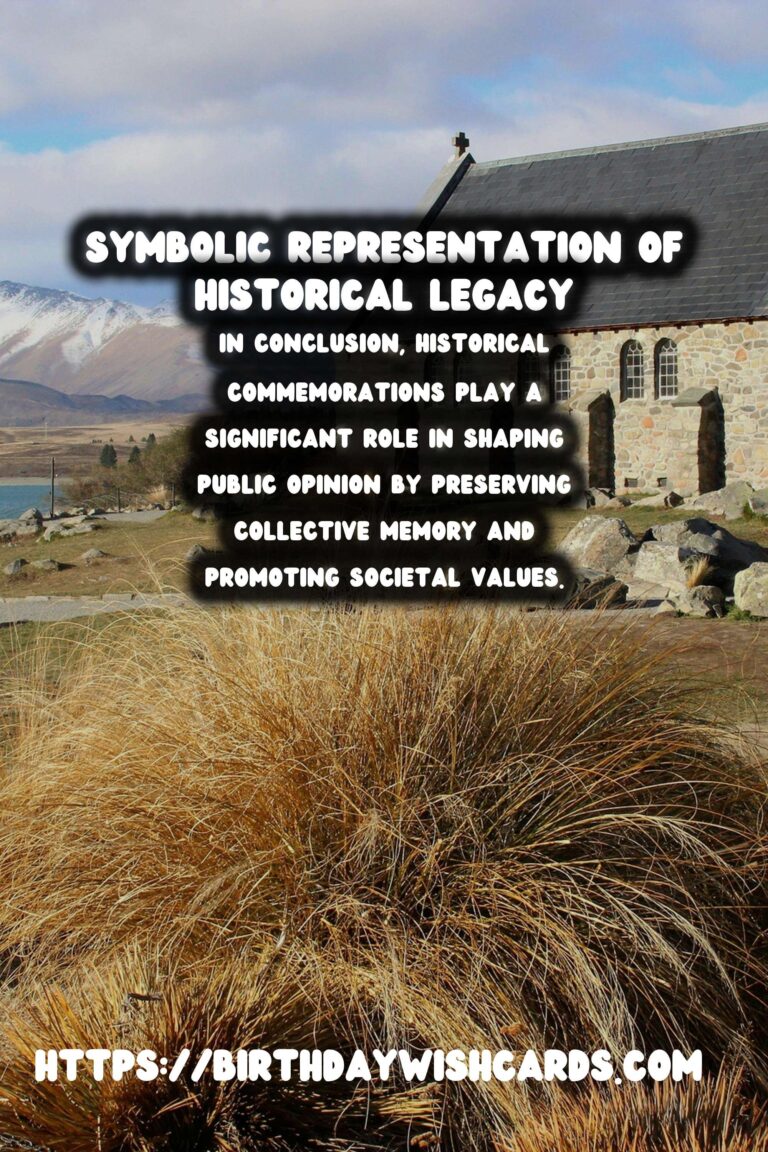
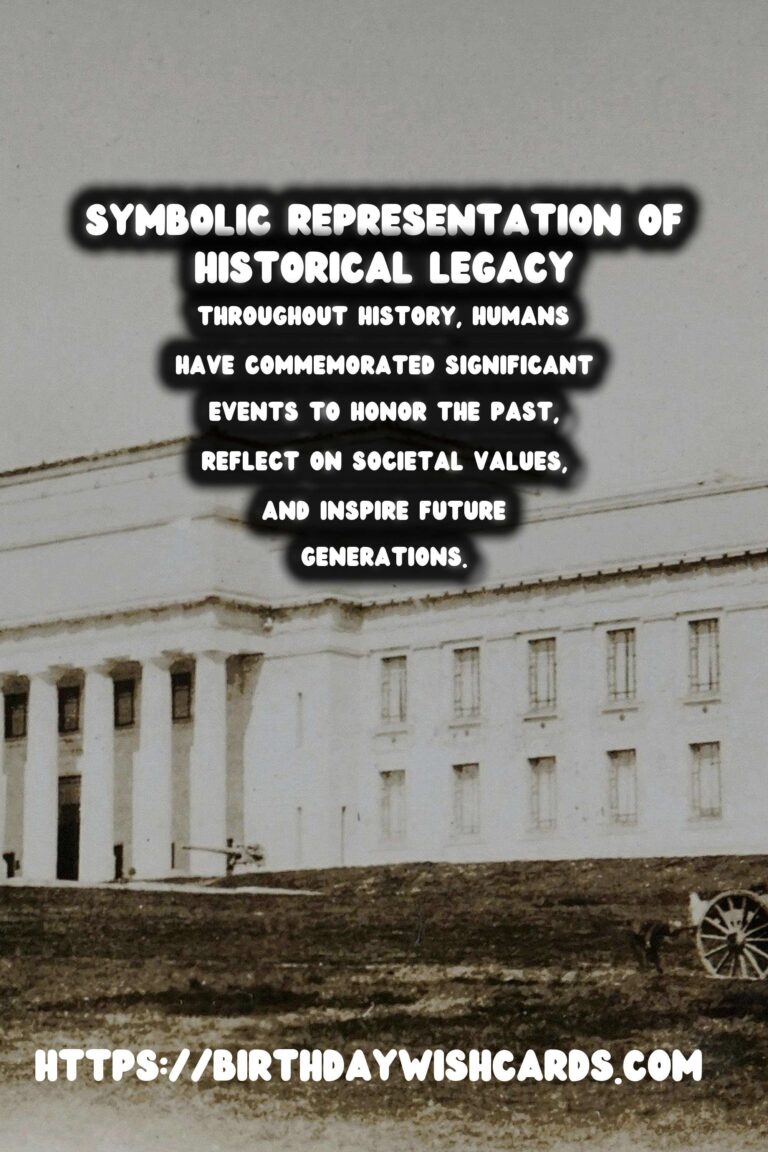
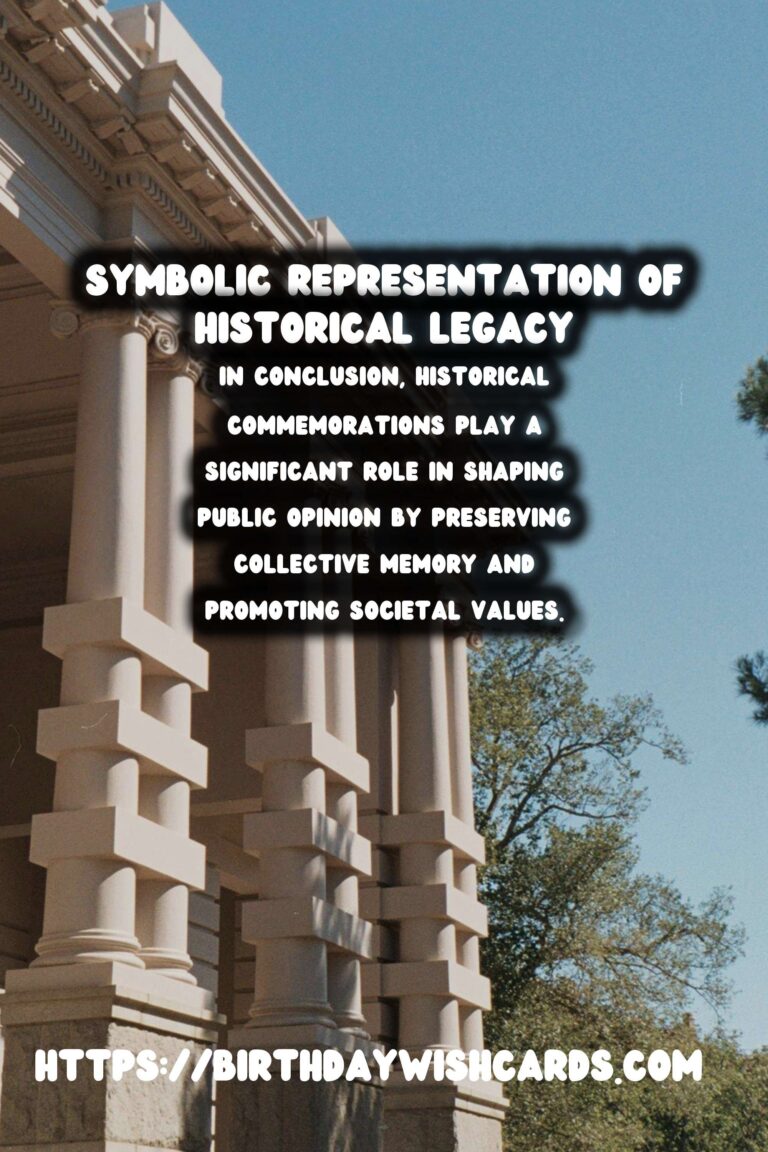
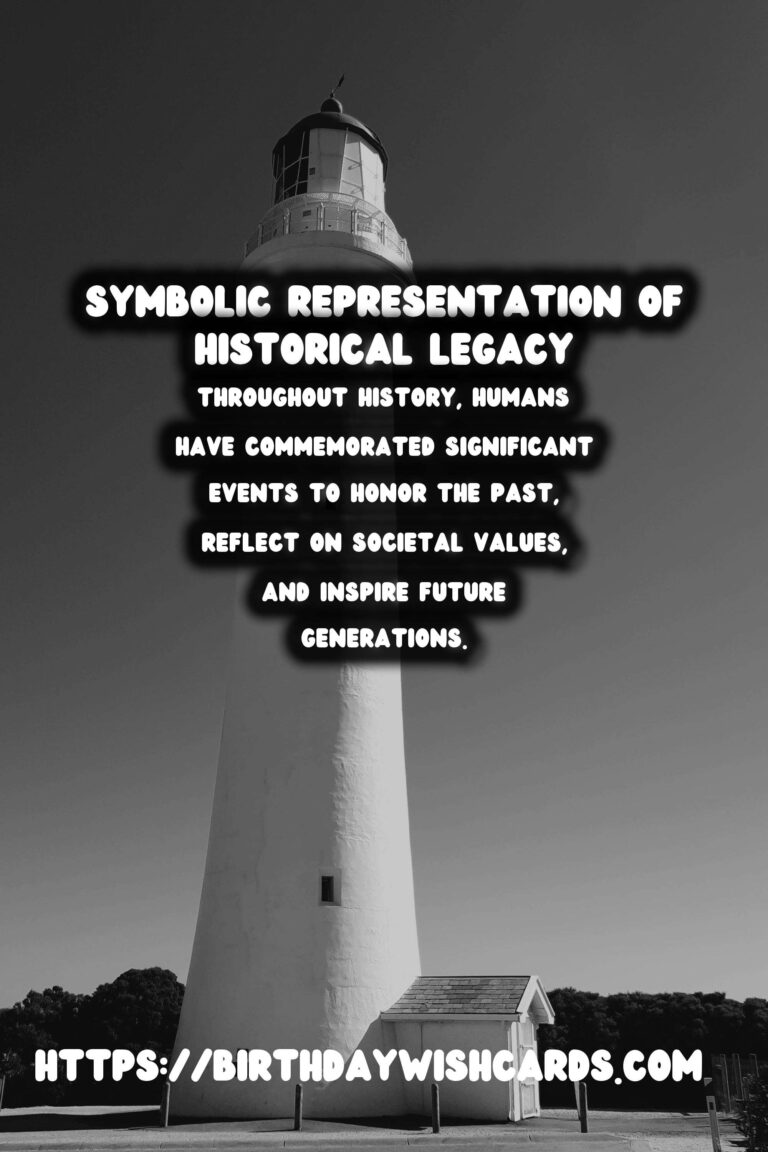
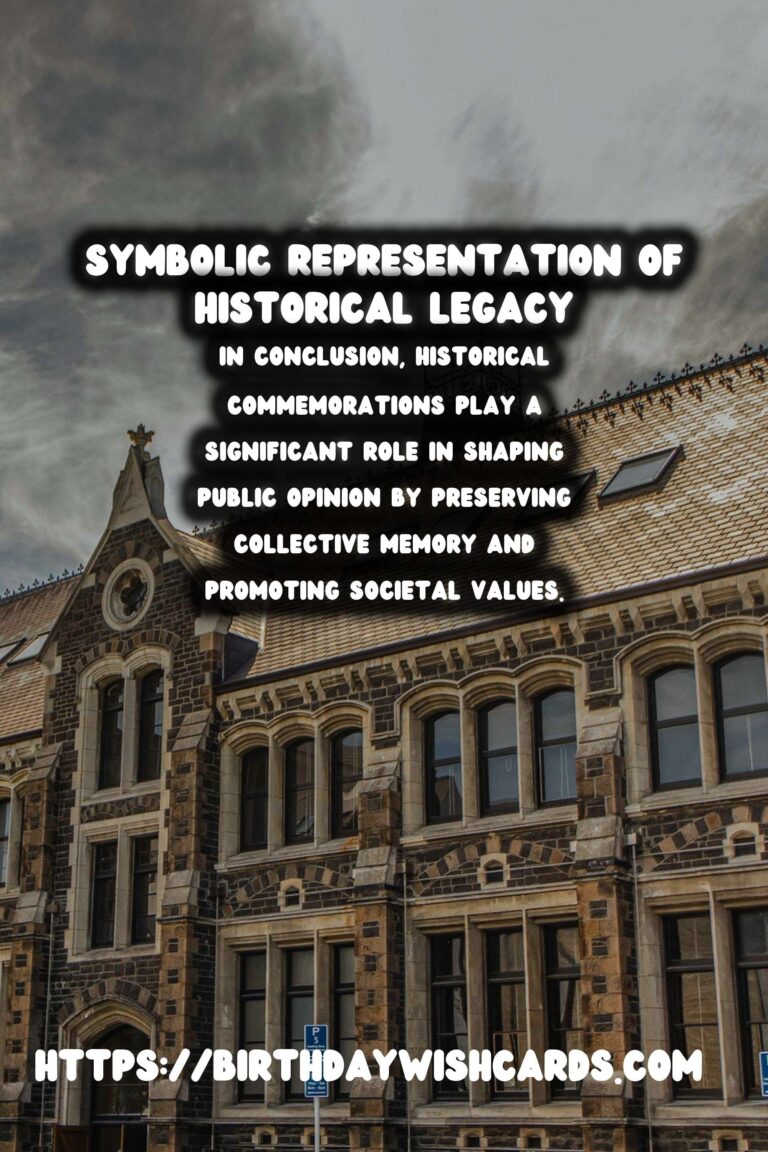
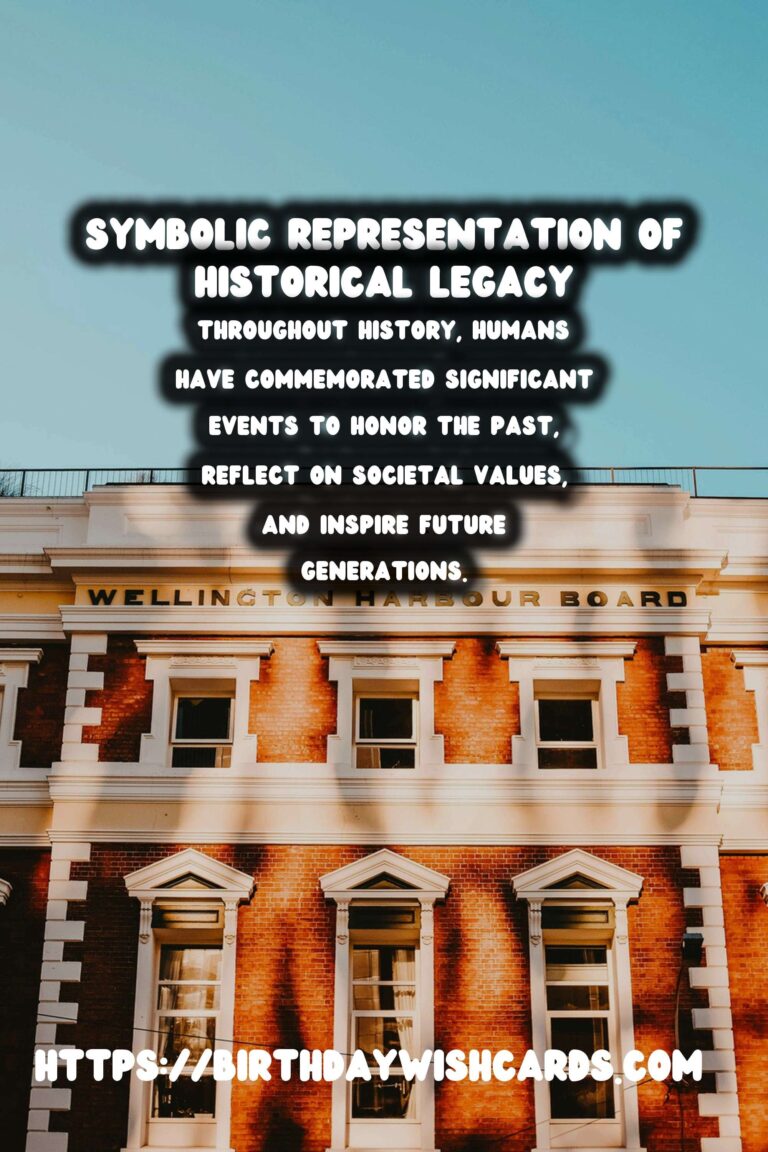
#HistoricalCommemorations #PublicOpinion




